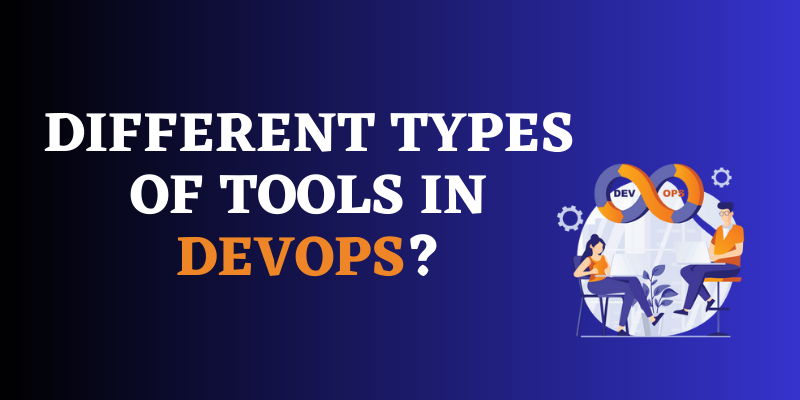
DevOps combines cultural philosophies, practices, and tools that improve an organization’s ability to deliver applications and services at high velocity, evolving and improving products faster than infrastructure management processes and traditional software development. Here, we will explore the different types of tools in DevOps. If you want to learn DevOps concepts, you can join DevOps Training in Madurai at FITA Academy will help you to enhance your technical skills in the DevOps domain.
Top 7 Tools in DevOps:
Git (GitLab, GitHub, Bitbucket)
Git is perhaps the most excellent and extensively used version control tool in a development era characterized by dynamism and collaboration. Version control lets developers keep track of all the modifications and updates in their code so that if something goes wrong, they can quickly return to and use earlier versions of the code, and Git appears to be the best for many reasons.
The Git DevOps tool is simple because it supports most protocols, including HTTP, SSH, and FTP. Unlike most centralized version control technologies, it provides the most significant benefit for non-linear shared-repository development projects. This makes it an excellent choice for mission-critical software. DevOps Training in Coimbatore will guide you to grow as a successful DevOps Developer.
Maven
Maven is an important DevOps tool for project development. Unlike the ANT build system, Apache Maven is more than just an automation build framework. It is also intended to handle the processes of reporting, documentation, distribution, releases, and dependencies. Maven, written in Java, can build and manage projects written in Java, C#, Ruby, Scala, and other languages by utilizing project object model (POM) plugins.
Also Read: How To Start A Graphic Designing Business?
Jenkins
Jenkins is a DevOps integration tool. Jenkins stands out for continuous integration (CI) since it is built for internal and plugin expansions. Jenkins is a Java-based open-source continuous integration (CI) server suitable for various operating systems, including Windows, macOS, and Unix-like. Jenkins can also be installed on cloud-based platforms.
Continuous Integration and Continuous Delivery are fundamental DevOps practices, making Jenkins an indispensable DevOps tool. Jenkins is compatible with many CI/CD integration tools and services due to over 1,500 plugins enabling integration points for delivering customized functionality through software development. The DevOps Training in Hyderabad teaches learners about the fundamental concepts and technologies and how they interact.
Puppet
Puppet is open-source and uses declarative programming for system setup, deployments, and server administration DevOps tools. It is organized into reusable modules enabling quick construction of pre-configured servers, and is platform-independent. It utilizes IAC, has a master-slave architecture, and has an intuitive user interface for real-time reporting, node management, and other tasks.
Ansible
Ansible is a free and open-source CM DevOps deployment, automation, and orchestration tool. While Ansible employs infrastructure as a code architecture, its push nodes use SSH connections, making it agentless. Ansible is the easiest to understand and use of the three since its Playbooks are written in YAML with minimal commands and are readable by people. DevOps Training in Pondicherry for the best instruction and Placement Assistance if you want to start a career in DevOps.
Docker
Container platforms are application solutions that enable developers to build, test, and ship applications in resource-independent environments. Each container contains a complete runtime environment, including the specific application, its libraries, source code, configurations, and dependencies. Container platforms provide orchestration, automation, security, governance, and other features.
DevOps mainly relies on containerization and microservices for efficient application development and deployment, with Docker and Kubernetes being the most extensively used container technologies.
Also Read: How do Devops and Agile Relate to One Another?
Kubernetes
On the other hand, Kubernetes is a platform for automation orchestration that allows developers to execute containerized applications across Kubernetes clusters, which are groups of nodes. To improve speed and efficiency in production, developers use Kubernetes to automate container configuration, scalability, networking, security, and others. To understand and gain knowledge about Devops, you can register for DevOps Training in Trivandrum, Which will help you with comprehensive training that offers various advanced strategies and techniques.
Also Read: What Are The Modern PHP Things Used In Present?